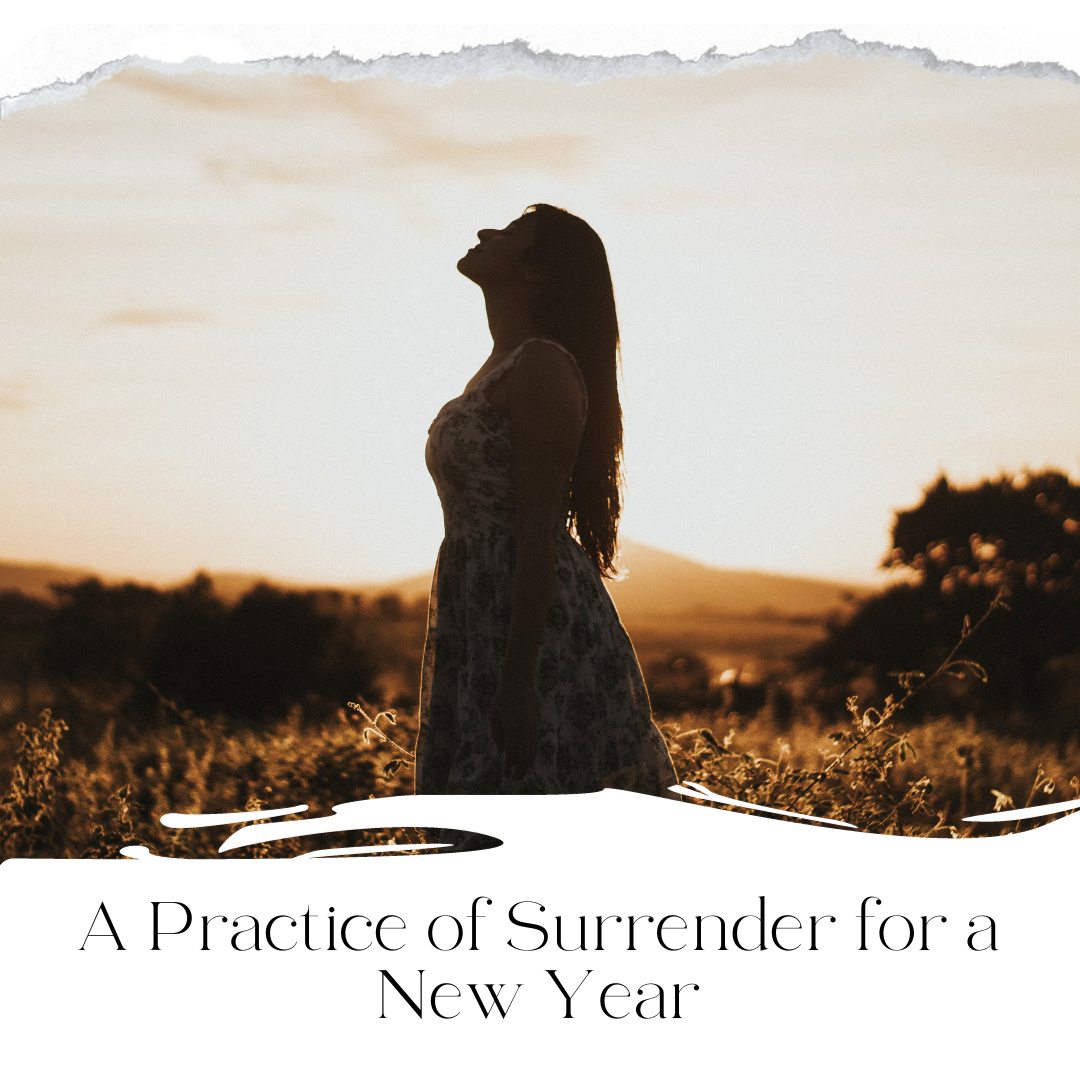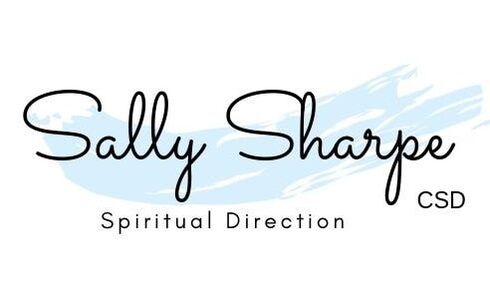|
It’s hard to fully enter into a new year when we haven’t released the previous one. A helpful and healthy practice for the first few weeks of the year is to review and release what has been—both the lows and the highs, the bad and the good. Unless we release our grip on what has been, and then release our grip on what is to come, we cannot fully open ourselves to welcome whatever God desires for us this year.
One tool that can help us to review and release while renewing our covenant with God is a prayer of surrender called the Wesleyan Covenant prayer. This prayer has been used at the beginning of the new year by Christians in the Wesleyan tradition for more than 250 years, and it has much to offer us today regardless of our denominational background or affiliation. The prayer aligns with Jesus’ invitation in Luke 9:23: “If any want to become my followers, let them deny themselves and take up their cross daily and follow me.” As we pray the prayer, we’re reminded what surrendering to God looks like: self-giving and self-emptying love. I invite you to read the prayer slowly, paying attention to your internal responses as you read. Notice if a word or phrase stands out to you—or perhaps challenges you.
Modern Wesley’s Covenant Prayer
I am no longer my own, but yours, God. Put me to what you will, rank me with whom you will. Put me to doing, put me to suffering. Let me be employed for you or laid aside for you. Exalted for you or brought low for you. Let me full, let me be empty. Let me have all things, let me have nothing. I freely and heartily yield all things to your pleasure and disposal. And now, O glorious and blessed God, Father, Son, and Holy Spirit, You are mine, and I am yours. So be it. And the covenant which I have made on earth, Let it be ratified in heaven. Amen. These words can be jarring when we first read them, especially a phrase like “put me to suffering.” So, let’s pause there just a moment. Because Wesley did not believe in determinism—the idea that everything that happens is God’s will—we know this phrase does not imply God causes our suffering. Scripture tells us that God's heart is for healing and restoration and wholeness. Suffering is a given in this broken world, and God’s desire is to enter into our suffering and redeem it. We see this clearly in the life, death, and resurrection of Christ. Perhaps these words by pastor and author Robert Schnase may help our understanding: "No sane person desires suffering, or would invite it. 'Put me to suffering' reminds us that following Christ brings us into contact with those who suffer, and it wounds us to touch the pain of others. When the Spirit moves us to the side of those who are alone, hurting, unjustly treated, grieving, the victims of violence, poverty, or hopelessness, we can’t go there without receiving our own scars, without putting ourselves at some level of risk. To what extent are we willing to face inconvenience and suffering to follow Christ? Are we able to absorb anger, violence, or rejection in order to serve Christ?"[1] We see that the entire prayer is a radical surrender—a self-giving—to Christ and his kingdom work. It reminds me of another radical prayer of surrender written by Saint Ignatius of Loyola in the 16th century called the Sucipe, which means receive. To pray the Sucipe is to invite God to receive all of oneself. Read the prayer below and, once again, notice if a word or phrase stands out to you.
Sucipe
Take, God, and receive all my liberty, my memory, my understanding, and my entire will. All I have and call my own. You have given all to me. To you, God, I return it. Everything is yours; do with it what you will. Give me only your love and your grace. That is enough for me. —Saint Ignatius
In this prayer we acknowledge that all we have, including our very lives, is a gift of God; then we give all back to God, asking only for his love and grace. Radical prayers of surrender such as the Sucipe and the Wesleyan Covenant Prayer are about full surrender. They help us release all to God—all we have and all we desire; all we’ve experienced and all we long for—so we may come to a place of inner rest and peace. Ignatius called this “holy indifference.”
When we hear the word indifference today, we tend to think of apathy. But Ignatius was not talking about spiritual apathy, as in “God’s going to do what God’s going to do, so I don’t care.” Holy indifference means releasing our preferences or agendas about how our lives “should” unfold and trusting God to lead us. It is the place where we can say, “I want what God wants. And whatever God wants is okay with me.” It is choosing to discern and follow God’s guidance, even when the road is rocky. This kind of surrender requires trust in God built on a foundation of love and grace. It requires us to trust that God loves us and is for us, believing that “God causes everything to work together for the good of those who love God” (Romans 8:28 NLT, emphasis added). It is a full surrender, a giving of the whole self. It can be helpful to understand that in the life of faith, there are two kinds of surrender, or self-giving:
The first kind of surrender is a one-time moment, although there can be special times in our lives when we want to recommit our lives to Christ and publicly express our renewed commitment. The second kind of surrender is an ongoing process of self-giving and surrender through which we release more and more of ourselves and our lives to God. At times this process involves wrestling with God. All the great heroes of faith wrestled with God.
I don’t know about you, but it helps me to remember that I’m in good company when I struggle to surrender! Even so, I can get frustrated with myself when I struggle. Why is it so hard to surrender sometimes? Here are a couple of thoughts about that.
Jesus was fully human, so he had a natural human instinct to avoid pain and suffering. Yet after wrestling with God in the garden, Jesus came to a place of surrender, accepting what lay before him. When we’re unable to come to a place of surrender after wrestling with God, this may reveal an area in our lives where we have attachments—people, things, or circumstances we think must be a certain way in order for us to be okay—or trust issues with God, usually because of past disappointments or hurts. Rather than judging or criticizing ourselves when we struggle to surrender, which only keeps us stuck, we can offer ourselves self-compassion and take a first step toward growing our trust in God. What is that first step? Be authentic with God about the reality of our struggle and open ourselves to experience the love and grace of God just as we are. As we experience God accepting us and loving us as we are—with all our fears, concerns, questions, and hesitations—we begin to trust God’s heart toward us. And the more we trust God’s heart toward us and experience his love for us, the more we're willing to surrender to him. As this happens, we find it feels safe to ask God to reveal our attachments and our trust issues, along with the underlying reasons, so we can open ourselves to God’s healing. Wherever you are today on the journey of surrender, there is grace upon grace, my friend! Remember this: just as the father of the possessed boy in Mark 9:24 said, “I believe, help my unbelief,” we can pray, “I surrender, help my struggle to surrender.” We can pray the Wesleyan Covenant Prayer, or any prayer of surrender, knowing that we have surrendered, and there is more to surrender. And our loving God will be faithful to lead us every step of the way.
A Guided Prayer Exercise Using the Wesleyan Covenant Prayer
This guided prayer exercise will lead you in a process of releasing what has been and what is yet to be so that you may welcome whatever God has for you in the new year. Remember, it is possible to surrender while also praying, "Help my struggle to surrender." Surrender is a process, and we are on the journey! (You will need approximately 20 minutes for the prayer exercise.) [1] http://robertschnase.com/blog/105-wesleys-covenant-prayer-part-ii/
0 Comments
|
Hi, I'm Sally!
I'm passionate about connecting with God and connecting with people, offering spiritual encouragement and companionship. I'm so grateful to be on the journey with you as we walk with God together. subscribeArchives
July 2024
Categories
All
|
|
Copyright 2019 Sally Sharpe Spiritual Direction |
Proudly powered by Weebly
|


 RSS Feed
RSS Feed
